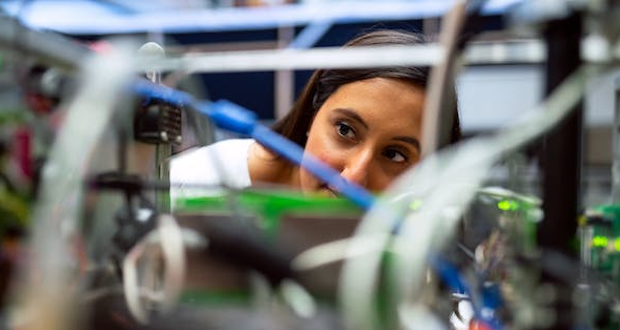Secular individuals regularly stereotype and hold a bias against Christians working in scientific fields because they believe religion and science are in conflict, according to research by the University of Ohio.
The research, published in the “Public Understanding of Science” journal, analyzed two separate studies to examine the perceptions of incompatibility between Christianity and science in the United States and how it influences nonreligious individuals’ stereotypes of Christians in the field. Although nonreligious respondents perceived Christians as less intelligent, Christian respondents were more likely to perceive Christians as more intelligent and scientific than nonreligious participants.
Metro Voice will hold a special 1-hour seminar titled, “Navigating Through Faith and Science in College” at 9 a.m., Saturday, March 4. The free event will take place immediately prior to the Midwest Christian College Expo. Both events are being held at Colonial Presbyterian Church, 9500, Wornall Road, Kansas City, Mo. The expo begins at 10 a.m.
According to PsyPost, a journal on psychology and neuroscience discoveries, “To better understand the causal relationships involved, the researchers conducted an experiment with 799 participants who were recruited via Amazon’s Mechanical Turk. Out of these, 520 identified as Christians and 279 as nonreligious. They were randomly assigned to read one of two articles. One article portrayed Christianity and science as being compatible, while the other described them as incompatible.
The participants then completed the same implicit and explicit measures as in the previous study. Researchers found that nonreligious participants perceived Christians as more intelligent and scientific when they were presented with information showing that Christianity and science are compatible, compared to nonreligious participants who read about them being incompatible.”
“Our research demonstrates that perceiving conflict between religion and science can have detrimental effects not only on Christians’ performance and interest in science, as prior research has shown, but also on nonreligious people’s stereotypes about Christians,” study author Cameron Mackey said. “That is, because nonreligious individuals are more likely to believe that Christianity and science can’t work together, they are more likely to stereotype Christians as uninterested in or incompetent at science.”
READ: Anthropologists pressured to stop labeling remains “male” and “female”
“If people are reminded of how Christianity and science can potentially coexist, people’s perceptions of Christians in science can become more positive,” Mackey said.
Mackey added that many prominent atheists opposed Francis Collins, an evangelical Christian who served as the head of the National Institutes of Health until his retirement last year. Perry Enever, the founder of Canterbury Christianity and Science Interactive, said stereotypes are set up to be disproved.
“I think if you can relate to someone and get to know them, they can get to know you,” he said “There are all kinds of questions and stereotypes and wrong ideas that people have, and Christians can do the same things as well, sometimes. The Christians in this were presuming that actually the atheists were less intelligent and less into science. So I think there’s a lesson for us as well to avoid that stereotyping and getting to know the people that are asking the questions.”
The Museum of the Bible in Washington, D.C., recently opened a new exhibit “Scripture and Science: Our Universe, Ourselves, Our Place.” The exhibition highlights the dynamic relationship between science and religion throughout history.
“Making perceptions of Christians in science more positive is crucial for increasing Christian representation in science and increasing trust between religious and nonreligious individuals in scientific domains. These changing perceptions may help increase Christians’ representation in science,” Mackey contends.
The study, “Christianity-science compatibility beliefs increase nonreligious individuals’ perceptions of Christians’ intelligence and scientific ability“, was authored by Cameron D. Mackey, Kimberly Rios, and Zhen Hadassah Cheng.
–Alan Goforth | MV
 Metro Voice News Celebrating Faith, Family & Community
Metro Voice News Celebrating Faith, Family & Community









